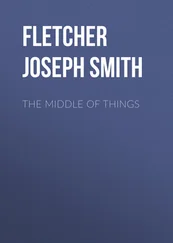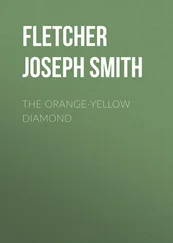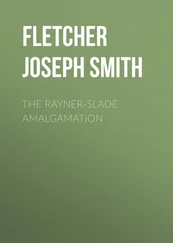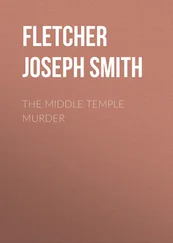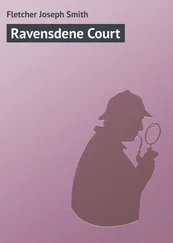Joseph Fletcher - The Borough Treasurer
Здесь есть возможность читать онлайн «Joseph Fletcher - The Borough Treasurer» — ознакомительный отрывок электронной книги совершенно бесплатно, а после прочтения отрывка купить полную версию. В некоторых случаях можно слушать аудио, скачать через торрент в формате fb2 и присутствует краткое содержание. Жанр: foreign_prose, Классический детектив, foreign_detective, foreign_antique, на английском языке. Описание произведения, (предисловие) а так же отзывы посетителей доступны на портале библиотеки ЛибКат.
- Название:The Borough Treasurer
- Автор:
- Жанр:
- Год:неизвестен
- ISBN:нет данных
- Рейтинг книги:5 / 5. Голосов: 1
-
Избранное:Добавить в избранное
- Отзывы:
-
Ваша оценка:
- 100
- 1
- 2
- 3
- 4
- 5
The Borough Treasurer: краткое содержание, описание и аннотация
Предлагаем к чтению аннотацию, описание, краткое содержание или предисловие (зависит от того, что написал сам автор книги «The Borough Treasurer»). Если вы не нашли необходимую информацию о книге — напишите в комментариях, мы постараемся отыскать её.
The Borough Treasurer — читать онлайн ознакомительный отрывок
Ниже представлен текст книги, разбитый по страницам. Система сохранения места последней прочитанной страницы, позволяет с удобством читать онлайн бесплатно книгу «The Borough Treasurer», без необходимости каждый раз заново искать на чём Вы остановились. Поставьте закладку, и сможете в любой момент перейти на страницу, на которой закончили чтение.
Интервал:
Закладка:
CHAPTER VI
THE MAYOR
Here, then, thought Brereton, was Gentleman Jack's daughter—the girl of whom Bent had just been telling him. He looked at her narrowly as she stood confronting the strange group. A self-possessed young woman, he said to himself—beyond a little heightening of colour, a little questioning look about eyes and lips she showed no trace of undue surprise or fear. Decidedly a good-looking young woman, too, and not at all the sort of daughter that a man of queer character would be supposed to have—refined features, an air of breeding, a suggestion of culture. And he noticed that as he and Bent raised their hats, the two policemen touched their helmets—they were evidently well acquainted with the girl, and eyed her with some misgiving as well as respect.
"Beg pardon, miss," said the sergeant, who was obviously anything but pleased with his task. "But it's like this, d'you see?—your father, now, does he happen to be at home?"
"What is it you want?" she asked. And beginning a glance of inquiry at the sergeant she finished it at Bent. "Has something happened, Mr. Bent?" she went on. "If you want my father, and he's not in, then I don't know where he is—he went out early in the evening, and he hadn't returned when I left the house an hour ago."
"I daresay it's nothing," replied Bent. "But the fact is that something has happened. Your neighbour at the other end of the wood—old Mr. Kitely, you know—he's been found dead."
Brereton, closely watching the girl, saw that this conveyed nothing to her, beyond the mere announcement. She moved towards the door of the cottage, taking a key from her muff.
"Yes?" she said. "And—I suppose you want my father to help? He may be in—he may have gone to bed."
She unlocked the door, walked into the open living-room, and turning up a lamp which stood on the table, glanced around her.
"No," she continued. "He's not come in—so–"
"Better tell her, Mr. Bent," whispered the sergeant. "No use keeping it back, sir—she'll have to know."
"The fact is," said Bent, "Mr. Kitely—we're afraid—has been murdered."
The girl turned sharply at that; her eyes dilated, and a brighter tinge of colour came into her cheeks.
"Murdered!" she exclaimed. "Shot?"
Her eyes went past Bent to a corner of the room, and Brereton, following them, saw that there stood a gun, placed amongst a pile of fishing-rods and similar sporting implements. Her glance rested on it for only the fraction of a second; then it went back to Bent's face.
"I'd better tell you everything," said Bent quietly. "Mr. Kitely has been strangled. And the piece of cord with which it was done is—so the police here say—just such a piece as might have been cut off one of the cords which your father uses in his trade, you know."
"We aren't suggesting aught, you know, Miss Avice," remarked the sergeant. "Don't go for to think that—at present. But, you see, Harborough, he might have one o' those cords hanging about somewhere, and—do you understand?"
The girl had become very quiet, looking steadily from one man to the other. Once more her eyes settled on Bent.
"Do you know why Kitely was killed?" she asked suddenly. "Have you seen any reason for it?"
"He had been robbed, after his death," answered Bent. "That seems absolutely certain."
"Whatever you may say, you've got some suspicion about my father," she remarked after a pause. "Well—all I can say is, my father has no need to rob anybody—far from it, if you want the truth. But what do you want?" she continued, a little impatiently. "My father isn't in, and I don't know where he is—often he is out all night."
"If we could just look round his shed, now?" said the sergeant. "Just to see if aught's missing, like, you know. You see, miss–"
"You can look round the shed—and round anywhere else," said Avice. "Though what good that will do—well, you know where the shed is."
She turned away and began taking off her hat and coat, and the four men went out into the garden and turned to the lean-to shed at the end of the cottage. A tiled verandah ran along the front of cottage and shed, and the door of the shed was at its further end. But as the sergeant was about to open it, the policeman of the observant nature made his third discovery. He had been flashing the light of his bull's-eye lamp over his surroundings, and he now turned it on a coil of rope which hung from a nail in the boarded wall of the shed, between the door and the window.
"There you are, gentlemen!" he said, lifting the lamp in one hand and pointing triumphantly to a definite point of the coiled cord with the index finger of the other. "There! Cut clean, too—just like the bit up yonder!"
Brereton pressed forward and looked narrowly at what the man was indicating. There was no doubt that a length of cord had been freshly cut off the coil, and cut, too, with an unusually sharp, keen-bladed knife; the edges of the severance were clean and distinct, the separated strands were fresh and unsoiled. It was obvious that a piece of that cord had been cut from the rest within a very short time, and the sergeant shook his head gravely as he took the coil down from its nail.
"I don't think there's any need to look round much further, Mr. Bent," he said. "Of course, I shall take this away with me, and compare it with the shorter piece. But we'll just peep into this shed, so as to make his daughter believe that was what we wanted: I don't want to frighten her more than we have done. Naught there, you see," he went on, opening the shed door and revealing a whitewashed interior furnished with fittings and articles of its owner's trade. "Well, we'll away—with what we've got."
He went back to the door of the cottage and putting his head inside called gently to its occupant.
"Well?" demanded Avice.
"All right, miss—we're going," said the sergeant. "But if your father comes in, just ask him to step down to the police-station, d'you see?—I should like to have a word or two with him."
The girl made no answer to this gentle request, and when the sergeant had joined the others, she shut the door of the cottage, and Brereton heard it locked and bolted.
"That's about the strangest thing of all!" he said as he and Bent left the policemen and turned down a by-lane which led towards the town. "I haven't a doubt that the piece of cord with which Kitely was strangled was cut off that coil! Now what does it mean? Of course, to me it's the very surest proof that this man Harborough had nothing to do with the murder."
"Why?" asked Bent.
"Why? My dear fellow!" exclaimed Brereton. "Do you really think that any man who was in possession of his senses would do such a thing? Take a piece of cord from a coil—leave the coil where anybody could find it—strangle a man with the severed piece and leave it round the victim's neck? Absurd! No—a thousand times no!"
"Well—and what then?" asked Bent.
"Ah! Somebody cut that piece off—for the use it was put to," answered Brereton. "But—who?"
Bent made no reply for a while. Then, as they reached the outskirts of the town, he clapped a hand on his companion's arm.
"You're forgetting something—in spite of your legal mind," he said. "The murderer may have been interrupted before he could remove it. And in that case–"
He stopped suddenly as a gate opened in the wall of a garden which they were just passing, and a tall man emerged. In the light of the adjacent lamp Bent recognized Mallalieu. Mallalieu, too, recognized him, and stopped.
"Oh, that you, Mr. Mayor!" exclaimed Bent. "I was just wondering whether to drop in on you as I passed. Have you heard what's happened tonight?"
"Heard naught," replied Mallalieu. "I've just been having a hand at whist with Councillor Northrop and his wife and daughter. What has happened, then?"
Читать дальшеИнтервал:
Закладка:
Похожие книги на «The Borough Treasurer»
Представляем Вашему вниманию похожие книги на «The Borough Treasurer» списком для выбора. Мы отобрали схожую по названию и смыслу литературу в надежде предоставить читателям больше вариантов отыскать новые, интересные, ещё непрочитанные произведения.
Обсуждение, отзывы о книге «The Borough Treasurer» и просто собственные мнения читателей. Оставьте ваши комментарии, напишите, что Вы думаете о произведении, его смысле или главных героях. Укажите что конкретно понравилось, а что нет, и почему Вы так считаете.




